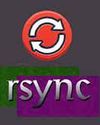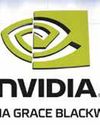
Generative artificial intelligence (GenAI or generative AI) programming has emerged as a transformative force, revolutionising various aspects of businesses and industries. By leveraging machine learning algorithms to create new content, generative AI has the potential to significantly enhance productivity, streamline operations, and unlock new opportunities for end users, internal users, developers, and technology operations within a company. This article delves into the impact of generative AI programming on these user groups, presents a table of use cases, and lists a few open source tools that can help harness the potential of generative AI programming.
End users
End users represent the external customers who interact with a company’s products or services. Generative AI can significantly enhance their experience through personalised content generation, predictive analytics, and improved customer support. ƒ
Personalised content generation:
Generative AI can create tailored content for end users based on their preferences, behaviour, and historical data, leading to increased engagement and satisfaction. Examples are personalised recommendations for products and entertainment.
Predictive analytics:
By analysing patterns and trends in user data, generative AI can anticipate end users’ needs, enabling companies to proactively address them and enhance customer satisfaction.
Enhanced customer support:
Generative AI can be employed to develop intelligent chatbots that provide instant, accurate, and personalised support to end users, improving their overall experience.
Esta historia es de la edición April 2024 de Open Source For You.
Comience su prueba gratuita de Magzter GOLD de 7 días para acceder a miles de historias premium seleccionadas y a más de 9,000 revistas y periódicos.
Ya eres suscriptor ? Conectar
Esta historia es de la edición April 2024 de Open Source For You.
Comience su prueba gratuita de Magzter GOLD de 7 días para acceder a miles de historias premium seleccionadas y a más de 9,000 revistas y periódicos.
Ya eres suscriptor? Conectar

Red Hat unveils Red Hat OpenShift Virtualization Engine
Red Hat OpenShift Virtualization Engine is a new edition of Red Hat OpenShift that offers a dedicated solution for organisations to leverage the virtualisation capabilities already available within Red Hat OpenShift.

Spring AI: A Door to GenAI Heaven for Java Developers
Let's explore the Spring AI framework and its advantages, and look at how it is helping Java developers adopt AI.

Significant security vulnerabilities drive the release of Rsync 3.4
Rsync, the widely used utility for incremental file transfers and synchronisation, has released version 3.4. This update isn't packed with exciting new features but is instead critical due to several newly disclosed security vulnerabilities.

NVIDIA puts Grace Blackwell at every AI developer's fingertips
NVIDIA has introduced NVIDIA Project DIGITS, a groundbreaking personal AI supercomputer designed to empower AI researchers, data scientists, and students NVIDIA® NVIDIA GRACE BLACKWELL with the immense capabilities of the NVIDIA Grace Blackwell platform.

Top Tools for DevOps, Cybersecurity, and Cloud Management in 2025
In 2025, organisations will continue to rely on open source tools to retain a competitive edge. We look at why the best tools for DevOps, cybersecurity and cloud management will remain relevant and how best to integrate them into your organisation.

CREW: Open source platform to improve human-AI interaction
As human-AI collaboration deepens, critical questions arise: How should humans and AI complement one another? What kind of feedback enhances AI training? How can trust in AI be optimised to balance collaboration without over-reliance? Researchers at Duke University are addressing these challenges through CREW-an innovative platform designed to advance human-AI teaming.

Red Hat completes the acquisition of Neural Magic
Red Hat, Inc., has announced the completion of its acquisition of Neural Magic, a trailblazer in software and algorithms that accelerate generative AI (GenAI) inference workloads.

The Do's and Don'ts for Software Architects
Here's a list of best practices for software architects as well as the common mistakes they should try not to fall prey to.

openSUSE's Tumbleweed introduces Wayland support for the LXQt desktop environment
The openSUSE Project has announced that its Tumbleweed rolling release distribution now includes Wayland support for users of the LXQt desktop environment.

A Guide for Software Architects: Common Mistakes and Best Practices
Software architects play an invaluable role in the digital transformation of an organisation. To make a mark, they must imbibe certain qualities and avoid common errors.